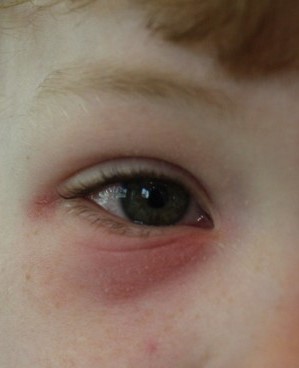There are many different eye allergies with a variety of available treatments. Eye allergies develop when the body’s immune system is irritated by the presence of an allergen in your eye and an allergic reaction occurs.
The cells in your eye that sense these allergens are the “mast cells”. An allergic reaction occurs when these mast cells, which contain antibodies, release histamine and other chemicals into the body that cause redness and itchiness of the eye.
Since eye allergy symptoms can be similar to eye disease symptoms, it is very important that the diagnosis is correct. If the diagnosis is incorrect, this can lead to severe inflammation and eventually, further damage to the eye and your vision.
Seasonal or perennial allergic conjunctivitis (SAC) is the most common type of eye allergy. The most common symptoms of SAC include redness, itching, burning, and watery eyes. These symptoms may be accompanied by puffy eyelids and dark circles underneath their eyes. Perennial allergic conjunctivitis (PAC) is a year-round allergy that has the same symptoms as SAC but are usually milder.
Another more serious allergy is called vernal keratoconjunctivitis. The reactions can be year-round though they typically worsen seasonally. Just like SAC, one of the symptoms is itching. In addition, this allergy includes heavy tearing and thick mucus, photophobia (aversion to light), and foreign body sensation. If this is not treated, it may lead to vision impairment.
Next is atopic keratoconjunctivitis. This allergy is mostly found in older patients, specifically men who have had allergic dermatitis. These symptoms are year-round and include burning, redness, harsh itching, and production of thick mucus that may cause eyelids to stick together. Without treatment, this can lead to scarring of the cornea and its membrane.
Contact allergic conjunctivitis is an allergy that comes from wearing contact lenses. If you have this allergy then you may experience redness, mucous release, discomfort, and itching. If you think you have this, it is important to talk to a doctor as the symptoms could be from the contact lenses or a different allergic reaction. Treatments include staying indoors as much as possible when pollen counts are elevated, use air conditioning in your car and home, replace air filters frequently, wash your hands and your clothes are coming in contact with pets, and over-the-counter and prescription medications.
Since these symptoms are similar, it is of the utmost importance to have a doctor check out your allergies.


